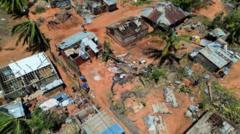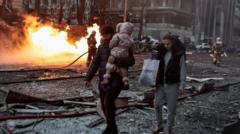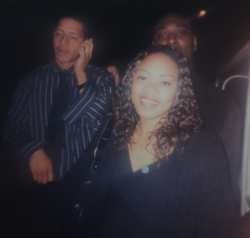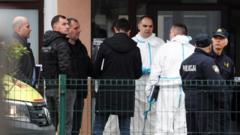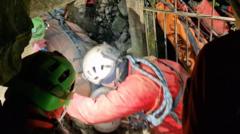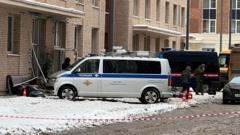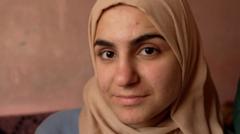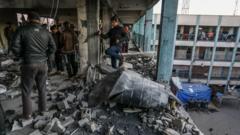In southern Lebanon, as airstrikes intensify, civilians grapple with the devastating consequences of conflict, exemplified by the story of 29-year-old Mohammed who suffered severe injuries while aiding his community during an Israeli airstrike. Highlighting the precarious situation, Mohammed questions why civilians are being targeted, given their non-combatant status. "We are not military... Why are we being hit?" he asks, reflecting frustration shared by many in his village, Arab Salim, which has been under incessant fire following Israel’s operations against Hezbollah that began on 1 October.
Escaping the Flames: The Civilian Toll in Lebanon’s Ongoing Conflict
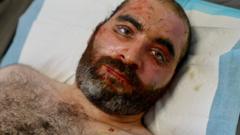
Escaping the Flames: The Civilian Toll in Lebanon’s Ongoing Conflict
An account from a survivor sheds light on the humanitarian crisis unfolding in southern Lebanon amidst continued airstrikes.
Mohammed recounts the harrowing experience of the strike, leaving him with third-degree burns and his life forever changed. Hospitalized in Nabih Berri, he witnessed ongoing trauma as additional casualties from his village continued to stream in, underscoring the relentless nature of violence in the area. Amidst the chaos, local medical staff, including hospital director Dr. Hassan Wazni, tirelessly manage the influx of victims despite dwindling resources and threats to their safety.
In the aftermath of the attacks, key community structures, including the historical souk of Nabatieh, have been reduced to rubble, symbolizing both the cultural loss felt by locals and the escalating humanitarian crisis. Volunteers from civil defense, such as Hussein Jaber, continue to risk their lives to support the wounded, often under the watchful gaze of Israeli reconnaissance drones.
Despite official Israeli claims of precision targeting limited to Hezbollah, the stark increase in civilian casualties raises significant ethical questions surrounding military engagement in densely populated areas. As reports of potential war crimes surface, calls for accountability grow louder amidst grief and destruction.
In this precarious environment, residents like Mohammed and first responders like Hussein embody a determination to uphold human connection and aid, even as the specter of violence looms ever closer. The enduring human spirit amidst the wreckage of an ongoing war paints a poignant picture of resilience in the face of despair.
In the aftermath of the attacks, key community structures, including the historical souk of Nabatieh, have been reduced to rubble, symbolizing both the cultural loss felt by locals and the escalating humanitarian crisis. Volunteers from civil defense, such as Hussein Jaber, continue to risk their lives to support the wounded, often under the watchful gaze of Israeli reconnaissance drones.
Despite official Israeli claims of precision targeting limited to Hezbollah, the stark increase in civilian casualties raises significant ethical questions surrounding military engagement in densely populated areas. As reports of potential war crimes surface, calls for accountability grow louder amidst grief and destruction.
In this precarious environment, residents like Mohammed and first responders like Hussein embody a determination to uphold human connection and aid, even as the specter of violence looms ever closer. The enduring human spirit amidst the wreckage of an ongoing war paints a poignant picture of resilience in the face of despair.




